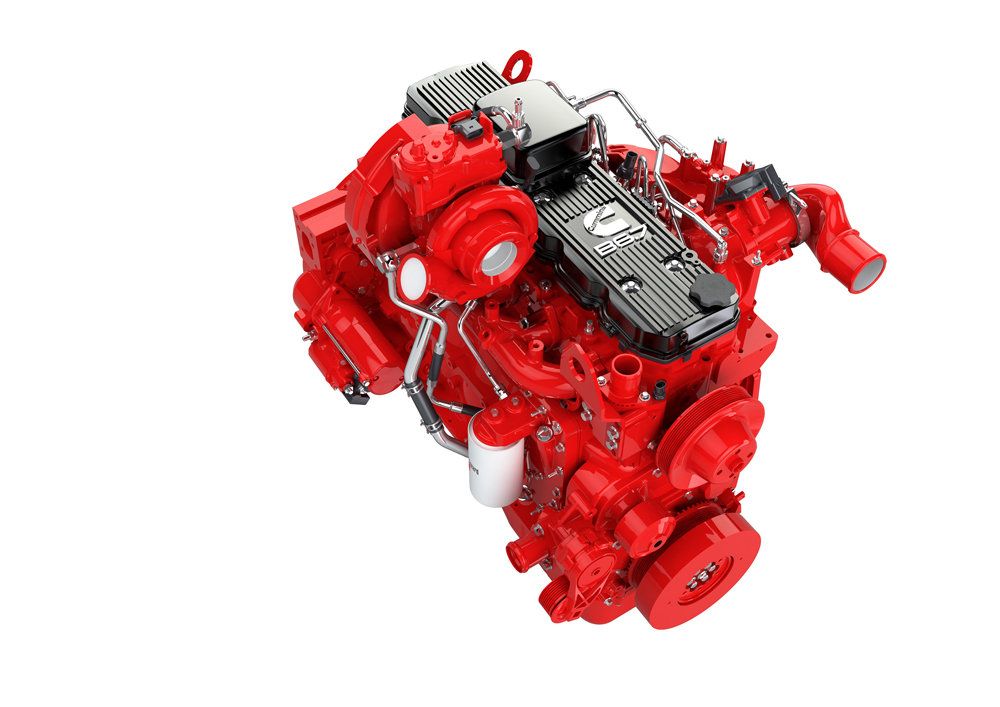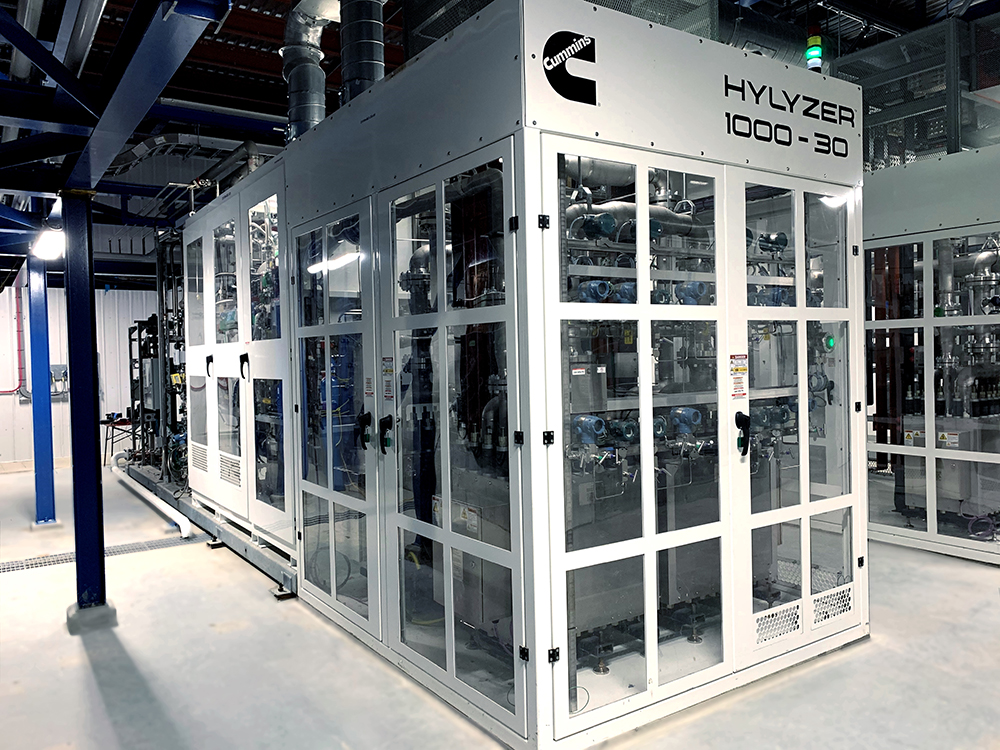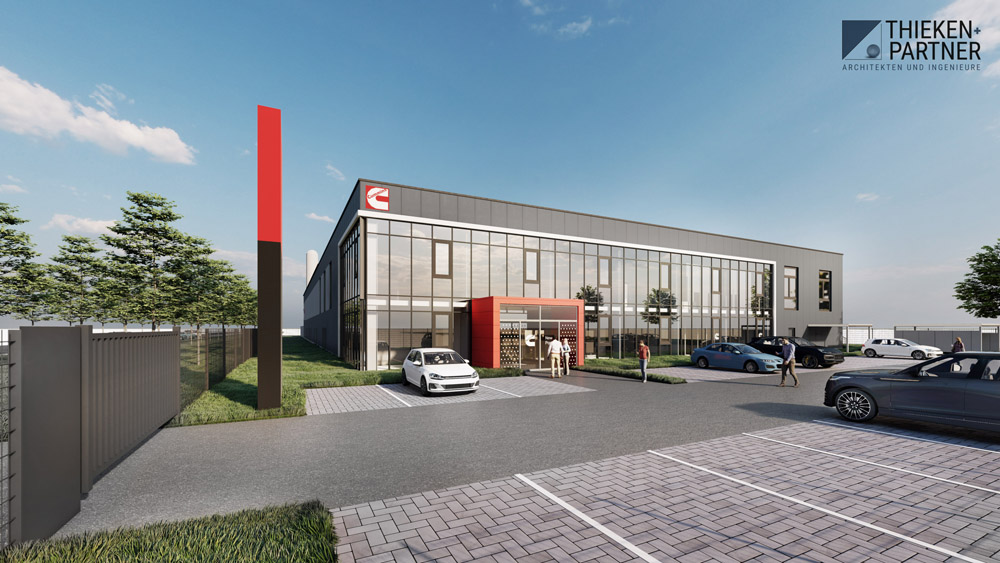
The engine firm is carrying out proof-of-concept tests using a modified B6.7litre diesel. The tests are said to build on its existing technology leadership in gaseous-fuel applications and powertrains. The aim is to deliver new power solutions that will help meet the energy and environmental needs of the future.
“Cummins is thrilled about the potential of the hydrogen engine to reduce emissions and provide power and performance for customers,” said Srikanth Padmanabhan, president of the engine segment. “We are using all-new engine platforms equipped with the latest technologies to improve power density, reduce friction and improve thermal efficiency, allowing us to avoid the typical performance limitations and efficiency compromises associated with converting diesel or natural gas engines over to hydrogen fuel. We have made significant technological advancements and we are optimistic about bringing this solution to market.”
Following the proof-of-concept testing, the company plans to evaluate the engine in various on- and off-highway applications, supporting the company’s efforts to accelerate the decarbonisation of commercial vehicles.
“The hydrogen engine programme can potentially expand the technology options available to achieve a more sustainable transport sector, complementing our capabilities in hydrogen fuel cell, battery electric and renewable natural gas powertrains,” said Jonathon White, vice-president of engine business engineering.
Hydrogen engines offer users the benefit of adaptability by using familiar mechanical drivelines, with vehicle and equipment integration mirroring that of current powertrains while continuing to provide the power and capability for application needs.
The hydrogen engines can use green hydrogen fuel, produced by Cummins-manufactured electrolysers, emitting near-zero CO2 emissions through the tailpipe and near-zero levels of NOx. The projected investment in renewable hydrogen production globally will provide a growing opportunity to deploy hydrogen-powered fleets utilising either Cummins fuel cell or engine power.
Cummins is investing across a range of technologies to support hydrogen-based transportation, including hydrogen engines, fuel cells, electrolysers and storage tanks.
The firm has a joint venture partnership with hydrogen storage specialist NPROXX that adds the ability to integrate the fuel cell or hydrogen engine with the high-pressure gas cylinder tanks and supply lines on the vehicle. The high energy density of hydrogen enables easily integrated onboard gas storage without compromising vehicle payload or operating range. NPROXX is also a leading supplier of containerised storage vessels, enabling fast hydrogen refuelling for users.
The firm’s role in expanding the use of hydrogen goes beyond fuel cells and storage solutions to the manufacture of decarbonised renewable hydrogen. The modular scalability of its electrolysers are suited to a range of applications, from the localised supply of on-highway fleets to utility-scale electrolysis. Cummins has hydrogen capabilities extending from fuel production to storage and vehicle power.
In a further step, Cummins and Chevron have announced a strategic collaboration for the hydrogen sector. The firms have agreed on a memorandum of understanding (MOU) to develop commercially viable business opportunities in hydrogen and other alternative energy sources.
The MOU provides the framework for Chevron USA (Chevron) and Cummins to initially collaborate on four main objectives. The first is to advance public policy that promotes hydrogen as a decarbonising solution for transportation and industry. The second is to build market demand for commercial vehicles and industrial applications powered by hydrogen. The third is to develop infrastructure to support the use of hydrogen for industry and fuel cell vehicles. And the fourth is to explore opportunities to leverage electrolyser and fuel cell technologies from Cummins at Chevron’s refineries.
“Chevron is committed to developing and delivering affordable, reliable, ever-cleaner energy, and collaborating with Cummins is a positive step toward our goal of building a large-scale business in a lower-carbon area that is complementary to our current offerings,” said Andy Walz, president of Chevron Americas Fuels & Lubricants.
“Working with Chevron to advance hydrogen technology and accelerate ecosystem development helps us continue our goal in enabling a carbon-neutral world,” said Amy Davis, vice president and president of New Power at Cummins.
“The energy transition is happening, and we recognise the critical role hydrogen will play in our energy mix. We’ve deployed more than 2,000 fuel cells and 600 electrolysers around the world and are exploring other hydrogen alternatives, including a hydrogen-fuelled internal combustion engine, as we continue to accelerate and harness hydrogen’s powerful potential.”












